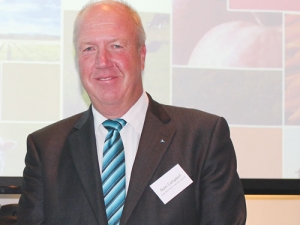Australian dairy farmers are unhappy with a new energy white paper unveiled this month by the Federal Government.
Australian Dairy Farmers (ADF) says the proposal fails to deliver for Australia’s important rural industries and communities.
ADF President Noel Campbell said the white paper provides no direct response to critical issues of reliable and efficient energy supplies in regional areas; instead it will add substantial cost to regional customers in an attempt to charge consumers the actual cost of energy use.
“The priorities suggested by the Government in the white paper disregard the dairy industry’s high power needs for milking equipment, milk storage and cooling, and milk processing procedures,” says Campbell.
“The introduction of cost-reflective tariffs would distinctly disadvantage dairy farmers and manufacturers located in areas where supply costs are higher and they are unable to alter patterns of energy use to take advantage of cheaper tariffs offered at non-peak times of day.”
The ADF points out proposals to increase investment in the energy sector do not include any new solutions to provide regional consumers with the same reliable supply access enjoyed in urban regions.
“The Government needs to carefully consider all initiatives to ensure there is no damage to long-term competitiveness of Australian agricultural commodities including dairy,” says Campbell.
ADF wants a viable incentive scheme for dairy farmers and manufacturers to increase their use of energy efficient technologies. Dairy has begun using renewable, efficient technologies on farm and in manufacturing, but this is costly and to continue to build the industry’s long-term sustainability Government attention and action is required.
Campbell says to enable the Australian dairy industry to grow, prosper and become more sustainable, the Government must act to encourage downward pressure on electricity prices, increased uptake of energy efficient technologies, and improve the reliability of supply.
Releasing the energy white paper, Industry and Science Minister Ian Macfarlane said the Government was delivering on an election commitment to give industry and consumers certainty in energy policy.
“The measures in the energy white paper will deliver stable energy policy and efficient transparent markets that give consumers information to make choices about their energy use and industry the confidence to invest,” says Macfarlane.
The National Energy Productivity Plan will deliver up to 40% improvement in energy productivity, reducing household and business energy costs, encouraging economic growth, and helping to reduce emissions.
The productivity target will be developed as part of Australia’s post 2020 emissions reduction target, due to be presented to the United Nations Framework Convention on Climate Change this year.











